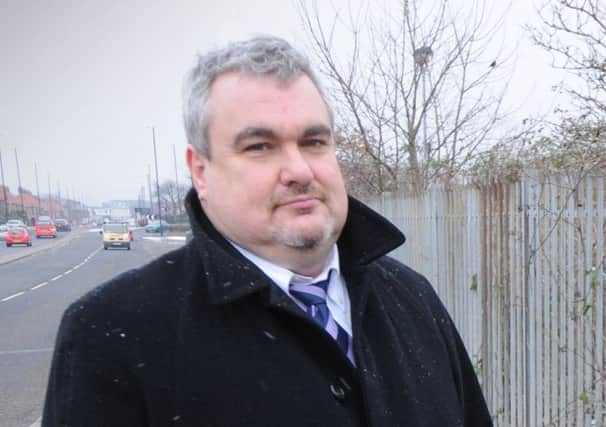Sunderland bingo giant Edward Thompson to cut more than half its staff


The printing firm has started consultation with staff over plans to make around 80 of its 135-strong workforce redundant.
Managing director Paddy Cronin blamed a decline in demand for old-fashioned bingo cards for the job losses at a firm which in the 1970s was the world’s largest manufacturer of bingo tickets.
Advertisement
Hide AdAdvertisement
Hide Ad“There has been a reduction in our primary business,” he said.
“The reasons are many but one factor is that people have moved away from paper towards electronics. You go into bingo halls now and people are playing on electronic devices - that has caused a reduction across the board.
“There has also been a reduction in the number of bingo halls across the country.
“There has been an increase in the electronic side of the business but that requires fewer people. There are also increasingly efficient machines that mean we don’t need that many people.
Advertisement
Hide AdAdvertisement
Hide Ad“The sad thing is that they are all fine people and it is a horrible shame but we are proposing to reduce the number of roles in the company by about 80 out of a total of about 135 - it is a big number.
“We are still in the early stage of consultation, there is nothing written in stone, but that is what we are proposing, that is what we think will be the figure.
“We are still in the middle of the process - we have to go through the consultation and allow people to come forward with alternative ideas.”
Cutting staff numbers was the only way to safeguard the future of the family business, said Mr Cronin.
“It is a shame but we have to cut our cloth,” he said.
Advertisement
Hide AdAdvertisement
Hide Ad“We have been here for 150 years - we have survived two World Wars, numerous recessions, and we are still here and we have got to make sure we carry on.
“We have been here a long time and hopefully if we get things right now, we will be able to go on a lot longer.
“We are trying to make sure the company survives but the unfortunate thing is that there are good people.
“In the last year, we have invested £400,000 in new equipment - we want to make sure Edward Thompson has a sustainable future and carries on as a going concern.”
EDWARD THOMPSON - THE RISE OF A FAMILY BUSINESS
Advertisement
Hide AdAdvertisement
Hide AdIt was Paddy Cronin’s father Frank who turned the family business into the world’s biggest manufacturer of bingo cards.
Edward Thompson was a small jobbing printer and stationer when Frank joined father John in the family business.
Returning home from national service in 1953, he was keen to take a more hands-on role in the business and a request from a local priest provided some divine inspiration.
When Father Jeremiah O’Callaghan ordered bingo tickets for a parish fund-raiser, Frank sensed a new opportunity. The first cards were ordered from a firm in Ipswich, but within months, Edward Thompson was printing its own.
Advertisement
Hide AdAdvertisement
Hide AdA firm with fewer than a dozen employees in 1959 was employing more than 300 people by the mid-60s and printing 50million cards a week.
Frank’s gift for numbers saw him expand the number of ticket combinations from fewer than 2,000, to nearly 17,000 and the firm still uses his calculations to draw up its cards today.
Bingo boomed in the 60s, with former cinemas often converted into bingo halls. A mill in Wilson Street was acquired to cope with demand and a factory for Frank’s new firm, Wearside Electronics, which built bingo blowers, was developed next door.
A second factory was completed in Richmond Street in 1964 and by the 1970s, Edward Thompson had become the world’s largest manufacturer of bingo tickets. Such was the firm’s success, Frank snapped up the old Echo office in Bridge Street in 1976 for extra storage space.
By the late 1970s, the firm was making 150million tickets a week, but it was the introduction of newspaper bingo which provided the biggest boost in the 1980s.